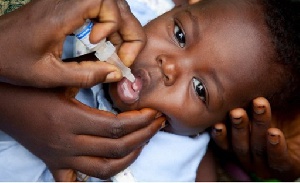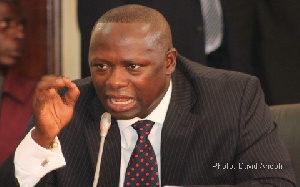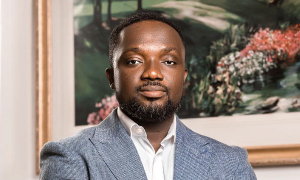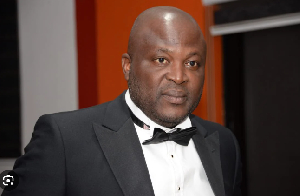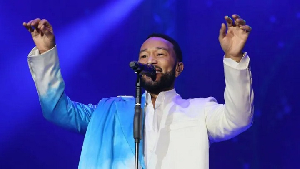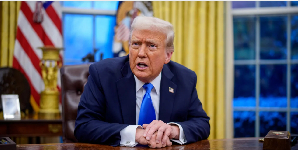The “wild” polio vaccination campaign announced by the Ghana Health Service (GHS) earlier this month (October 16) is fraught with serious problems.
Dr Patrick Kuma-Aboagye, Director-General of the (GHS) is widely reported to have stated in Koforidua that his outfit is targeting “over six and a half million children” in the current polio vaccination cycle.
Within living memory, many Ghanaians will recall that Ghana eradicated polio and the WHO gave Ghana an award.
In that old campaign, Abedi Pele, our national soccer hero, was used as a role model in polio campaign materials to convince families that immunisation was safe.
But alas, the “structural amnesia” of Ghanaians as rightly diagnosed by Sir Jack Goody, the British anthropologist is real.
Goody observed that within just one generation – 20 to 30 years – whole Ghanaian communities tend to forget everything.
Fellow country men and women, please permit us to bore you with all that Dr Kuma-Aboagye said about polio being able to survive in “sewage, water systems, and other environmental reservoirs posing an ongoing risk especially to unvaccinated populations”.
He even had the unserious attitude of telling the nation that this polio campaign cycle is an initiative of the government to close the “immunity gaps” that allow the poliovirus to persist.
Reading between the lines, polio vaccinations are an intervention for a problem more easily prevented through improved water and sanitation services.
Emily Willingham reported on the website Scientific American on 29 September 2022 that “wastewater samples in New York City” and other counties in New York State show evidence of the 2022 outbreak of Polio in America.
But New York City has appointed a Rat Czar so what else can you expect from such unsanitary environments?
Willingham added: “And many people infected with the virus never develop symptoms but can still pass the virus to others”.
America has surgically narrowed down their 2022 polio outbreak to poor sanitation in New York State.
So why is Ghana focusing on the “immunisation gaps” and ignoring the sanitation craters?
Now how does this polio vaccination campaign pass as any serious initiative of the Government?
Now we shall surely annoy the discerning reader with this line from Dr Winfred K. Ofosu, the Eastern Regional Director of GHS, but it is pertinent.
“We have significantly reduced the burden of polio. However, we are not yet at the finish line,” Dr Ofosu said. Come on, someone please tell these fuel-guzzling appointees that we crossed that finish line 16 years ago.
Ameme et al. (2023), apparently all Ghanaian researchers, writing in the journal Archives of Public Health, reported: “In Ghana, a total of 54 wild polioviruses (all type 1) were recorded from 1996, when Ghana launched its polio eradication initiative, to 2008, when the last wild poliovirus was detected in the Northern region.”
Poliomyelitis aka polio, is “a highly contagious faecal-orally transmitted viral disease” which causes “irreversible paralysis or death” among children under five years old, hence the immunisation of such a cohort.
“Of the three poliovirus types 1, 2 and 3 that cause poliomyelitis, wild poliovirus type 2 [….] has not been detected [in Ghana] since 1999 and was declared eradicated in 2015 while wild poliovirus type 3 was last reported in 2012” (Ameme et al., 2023, para. 5).
Now let us return to the Eastern Regional Director of Ghana Health Service. He even tells us, without feeling embarrassed, that this polio campaign “initiative” is “a bold statement of Ghana’s commitment to protect future generations”.
But Ameme et al. (2023) observed that the two polio cases observed in the Oti Region in 2019 were both vaccine derived and both communities lacked water and toilet facilities.
“Case-patient 1 was an eight-year-old female who had taken two doses of OPV [Oral Poliomyelitis Vaccine] while case-patient 2 was an eight-month-old male who had taken three out of required four OPV doses in addition to IPV [Inactivated Poliovirus Vaccine] at seven months” (Ameme et al., 2023, para. 3).
Ameme et al. (2023) concluded: “Outbreaks of [Vaccine-Derived Poliovirus] occurred in insanitary, under-vaccinated nomadic pastoralist settlements in Oti Region.”
Inactivated Poliovirus Vaccine [IPV] consists of inactivated (killed) poliovirus strains of all three poliovirus types and is administered by injection into the muscle or skin.
Let’s hear Willingham again: “The killed-virus vaccine protects against polio itself but not against viral transmission.
In regions around the world where the oral vaccine remains in use, the weakened virus can circulate beyond secondary immunisation of immediate contacts and travel through unvaccinated or undervaccinated populations.”
Here is another piece of evidence hidden in plain sight: “In about 1 of every 2.4 million recipients, the live, weakened virus contained in the oral polio vaccine causes paralysis. The shot does not have this same side effect because, unlike the oral version, the shot contains killed virus that cannot replicate and, therefore, cannot cause paralysis” (Children’s Hospital of Philadelphia, n.d., para. 8).
The Global Polio Eradication Initiative Endgame Strategic Plan (2013 to 2018) advocates that nation-states should complement the OPV with “at least one dose” of the inactivated poliovirus vaccine (IPV)” during immunisation programmes.
This objective here is to avoid a type 2 poliovirus outbreak and eventually switch completely from OPV to IPV. The complementary one-dose IPV became available in Ghana from June 2018 though in limited supply due to our cold chain storage shortage.
Yet, this is not the war-ravaged Gaza Strip, so why can’t our national leaders organise the human resources and logistics for the inactivated poliovirus vaccine (IPV) option?
From the foregoing analysis, it is not difficult to speculate that Ghana’s public health authorities will continue administering the Oral Poliomyelitis Vaccine (OPV) because it is the cheapest though not the best option.
Feedback: ato@writersghana.com; www.writersghana.com; LinkedIn, Isaac Ato Mensah; Instagram, @atomenswriters; Twitter, @Atomens; Facebook, Writers and Shakespeares Ghana; Telegram, Isaac Ato Mensah; Quora, Isaac Ato Mensah; WhatsApp, (+233) 020 022 0353.
Writers and Shakespeares Ghana Limited exist to be a moral and intellectual guide to the best practice of PR and integrated communications around the world, beginning with Ghana.
Opinions of Friday, 1 November 2024
Columnist: Isaac Ato Mensah





